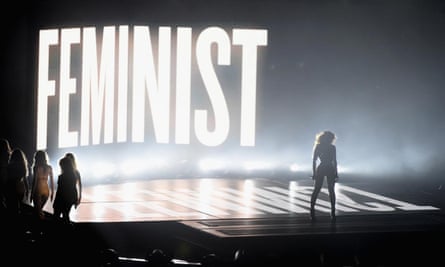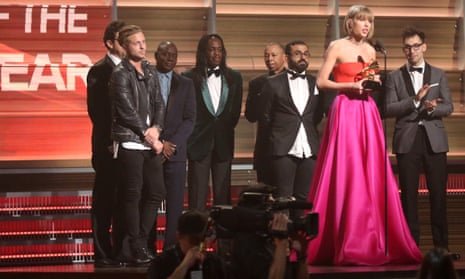The unofficial kickoff of music festival season began at Coachella in Indio, California this month, where emerging and big names coalesce for two scorchingly hot, endlessly sweaty weekends. This year followed the formula of previous ones: there was a much-hyped reunion (Guns N’ Roses), breathless media coverage of young celebs in leather shorts and thousands of people dropping molly and fending off dehydration with $12 beers. There was another familiar feature as well: for the ninth year in a row, there were no female headliners.
Summer music festivals have always leaned male, from long-running sausage parties like the Warped Tour and Ozzfest to more ostensibly unisex ones like Lollapalooza. Lilith Fair, the successful but short-lived lady-focused festival that debuted in the late 1990s, was a direct reaction to the mulishness of concert promoters who feared that having more than a few female acts on a summer bill would drive away their bread-and-butter demographic of young males. Still, a lot has changed in the past couple of decades, and when it comes to women in rock and pop music, one thing in particular has changed in just the past few years: namely, the marketing of “feminist” as a bona fide brand identity.

Beyoncé claimed it with her instantly legendary performance at the 2014 MTV Video Music Awards. Katy Perry used it to describe one of the perfumes in her growing fragrance line. Miley Cyrus declared herself “one of the biggest feminists” in an 2013 interview, noting that she “tell[s] women not to be afraid of anything.” And, of course, Taylor Swift has managed to keep herself in the feminist-celebrity news cycle with a multiyear journey from not-a-feminist to kinda-feminist to OMG-#SQUADGOALS feminist.
As someone old enough to remember a time when calling any celebrity a feminist garnered pretty much the same reaction as calling them a unrepentant puppy murderer, I can’t deny that it’s been exhilarating to see feminism’s transition from a scorned identifier to a coveted label. And in the last couple of years, as feminism has become a nearly commonplace lens through which pop culture creators and chroniclers assess the world, we’ve had a fascinating window onto how mainstream media attitudes toward feminism have evolved. But we’ve seen more disheartening windows, too, into the limitations of the label – and pop music has been one of them.
Because while it’s easy to throw the label “feminist” into a fizzy mix of other identifying descriptors, it’s a lot harder to carve out a space for ongoing, norm-shifting progress in an industry that has been shaped by and steeped in inequality, stereotyping and ambient discrimination. A place where groundbreaking performers from Joni Mitchell to Kathleen Hanna to Nicki Minaj have been defined less by their musical or vocal skills than by their looks and whom they were sleeping with; a place where female musicians have their work diminished by or in favor of their male collaborators; and, most definitely, a place where female musicians are expected to go along to get along.

In recent years, we’ve seen hopeful surges of resistance, many of them enabled by the viral power of social media: electro-pop musician Grimes noted on Tumblr that the number of male non-musicians who have nonetheless offered to “help” her with her music (“as if I did this by accident and I’m gonna flounder without them”); Solange hit back at press portrayals that suggested that she was the “face” of her own music, rather than its creator; and several female musicians who were sexually harassed by the founder of a music PR firm spoke out on Twitter and Instagram.
And those are just the artists. Behind the mixing board, popular music’s entrenched masculine culture has been slow to change as well. A 2015 Music Business Journal report noted that less than 5% of record producers and engineers are women; elsewhere in the industry, women with equal or superior qualifications are paid substantially less. It’s easy to rationalize away statistics like these, and plenty of people do. (“It’s not sexism – maybe women just don’t want those jobs!”) But when you actually listen to women who have found themselves marginalized – or listen to their male bandmates, for that matter – it’s a much more depressing story.
Indeed, Taylor Swift collected her album of the year Grammy at this year’s ceremony with a speech meant to be a rousing call to sisterhood (with the inevitable fillip of Kanye-directed shade), saying: “As the first woman to win album of the year twice, I want to say to all the young women out there, there are going to be people along the way who will try to undercut your success or take credit for your accomplishments or you fame.” But it was difficult to ignore that, as Swift delivered this all-too-true statement, the eight producers and co-songwriters standing behind her were all male.

What happens when you adopt feminism as part of your brand, but the industry that feeds you is one that’s still bogged down in the inequalities fueled by a long-brewing mix of sexism and capitalism? If we’re talking about pop music, what happens is that feminism becomes simply a glossy, buzzworthy talking point decontextualized from the real-life struggles of women to be treated as equals. Inspirational but over-broad statements about “empowerment” and “girl power” become exclusively personal, acts of independent saleswomanship that manifest as branding, rather than action.
There was an unexpected guest on the Coachella stage this year: embattled pop star Kesha, who popped in to sing an emotional version of True Colors during EDM producer Zedd’s set. The singer’s fight to be released from her contract with Sony after suing her mentor/producer, Dr Luke, for sexual assault has offered up an unsettling example of the gap between surface “empowerment” for women in the industry and actual power. The New York supreme court judge (a female judge, if it matters, and I’m not sure it does) who in February handed down the ruling that Kesha honor her obligation to Sony stated that it was “the commercially reasonable thing” to do. Commercial motives, not feminist progress, are what matters inside the pop-music machine. Putting a sunny facade of personal liberation on that dreary reality may sell records, perfume and aspirations – but if feminism is really about equality, that’s not nearly enough.

Comments (…)
Sign in or create your Guardian account to join the discussion